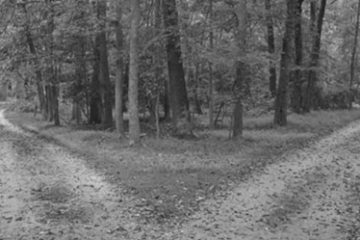Neither the cruelty or the grace …
When Doug and I first started dating he was beginning an obsession with birding. He grew up in Southern California, in an urban area, within a family that wasn’t particularly outdoorsy. As a kid the only birds he would see with any frequency were the seagulls that stole his lunch when he’d go surfing. However, he was mesmerized when a friend took him on a hike in Oregon and showed him scores of Bald Eagles, Hawks and Osprey. He immediately bought a copy of Audubon’s North American Field Guide of Birds and began building a bird list.
It is fun to look back at it now. He was such a novice and impressed that I could identify a Mallard, Canada’s Goose, Red-wing Blackbird, and Killdeer. During our first two years of marriage we traveled through 30 states and this bird list grew steadily.
When we settled in North Carolina it became a bit trickier to see new birds. However, Doug expected to add a new bird every time we took a walk. His birding soon began to annoy me. I got sick of the long pauses during walks with dog and baby. I got sick of craning our necks to stare into dense vegetation. I got sick of debating whether this or that bird had a white patch on its neck or whether its tail feathers were tan or cream. I was exhausted by his desire to categorize all the little brown birds.
I admit that I was delighted one day when our 14 months old daughter Johanna took the Sibley’s Guide down from the shelf and went through all 1,000 pages, looked at every single Stellar’s Jay, Kirkland’s Warbler and Pileated Woodpecker, pointed at them and said bird. Bird. Bird. Bird. Bird.
Today our Scripture passages deal with categorization. The Psalm and the Prophetic passage divide the world into those who are happy and blessed and those who are not. Those who are blessed and happy are spiritually deep like trees planted by streams of water. Those who are wicked or not blessed are spiritually poor like a shrub in the desert or a tree in a salt flat. The righteous enjoy stability and honour, but the wicked are blown away like chaff on the wind.
I confess that I felt a bit of uneasiness about these texts.
I was uneasy with how casually they divide the world into the good and the wicked. I was unsettled by how confidently they
equate happiness with being righteous. I especially reacted to the Jeremiah passage….
I don’t know… there is just something about this poor shrub trying to survive in the desert that can’t get its roots deep enough that made me sad.
There are plenty of people that I love and have love like that shrub. People that through no fault of their own were planted in deserts and salt flats.
These texts from the Old Testament share the theme of blessing or happiness with Jesus’ beatitudes. Matthew’s Jesus provides a list of characteristics that he proclaims are blessed.
This list include genuinely admirable characteristics:
gentleness, being a peacemaker, being merciful, and possessing a pure heart. When I was a kid I was told that these were the “be” attitudes,
I heard plenty of sermons on the beatitudes. Most of them gave a definition of each quality and a practical example of how to live out each attribute. One thing all these sermons had in common was that the preacher stumbled over how to define the first “be” attititude– “poor in spirit.” Preacher after preacher struggled to define being spiritually poor as a positive character trait.
In their attempts, they usually reached for humble or meek, however I always found that to be a bit of a stretch. It seems to me that the most straightforward way to read “poor in spirit” is not positive. I think a straightforward definition sounds a lot like the tree planted in the desert, who just can’t seem to get its roots down to the living water.
The kind of person the Psalmist calls a sinner and a scoffer.
Similarly, I wondered how “being a mourner” was as a “be” attitude.
Isn’t being a mourner part and parcel of being a human?
Now in some sermons “those who mourn” is spiritualized to mean those who repent/ mourn their sins (especially in more conservative spaces.) And in others “those who mourn” is psychologized to mean those who aren’t repressing or suppressing their emotions (especially in more liberal spaces.)
But I don’t know that I buy this. Isn’t those who mourn a pretty good description of all of us? Another way of saying everybody? (Especially in this world that our ancestors sometimes called a vale of tears).
I just don’t see Jesus’ beatitudes as merely a list of all the ways that we can be good and holy. I see something else going on here….
Something that jives with my experience of finding just as many people who have pure hearts in bars as in churches.
I wonder if Jesus isn’t doing something a bit more like what Johanna did with the bird book. Looking out over a crowd of people, overturning careful categories and proclaiming: bird. Bird. Bird.
Or in Jesus’ case: blessed. Blessed. Blessed.
In other words, what if this passage is really about indiscriminate blessing?
What if this passage is really about Jesus renaming people as God’s beloved?
The text then stands as a reminder that none of us deserves either the cruelty or grace of this world; none of us are in control of where we are planted or when the droughts come.
We are living through a difficult time. It is a time when categories are proliferating. We are busy naming people and name-calling.
Anti-vaxxer
Snowflake
Sheeple
Woke
Demoncrats,
Rethuglicans
Anti-masker,
Covidiot
Super spreader
These names, unlike beautiful names such as Ruby Throated Hummingbird or Scarlet Tanager, aren’t meant as a way of honoring individuality and uniqueness. These epithets demean. People are no longer your cousin Sandy or your high school buddy Jennifer. These names stifle our capacity to love, blight our imagination, and anesthetize our compassion.
As a People captivated by Jesus’ sermon on the Mount,
we must work very hard to call people the names that Jesus called them: Beloved and Blessed
Jesus’ beatitudes are followed by one of the hardest commands is Scripture– that we love our enemies. In times of peace and ease this is frankly a pretty popular command, but in times of division and war it quickly seems absurd, naive and even a bit repulsive.
We are forced to realize that this is a pretty stern and difficult discipline.
Yet, I am convinced this command must remain at the center of Jesus’ Good News.
For much of my childhood, I was tormented by fear that my parents were going to hell. The Christians that taught me this were also trying to convince me that God loved me.
In a lot of ways they did make me feel God’s love, however they also implanted in my soul a deep fear of barren spaces in this world and the next that exist outside of God’s love.
This fear of God-forsaken spaces will likely never completely go away, but being a Mennonite has helped a great deal.
Being Mennonite has made me look seriously at Jesus’ command to love my enemies. At some point when I was trying to live out this nearly impossible demand, I was overwhelmed by a comforting thought. God would never have asked us to do this nearly impossible thing if God didn’t also love God’s own enemies.
God has not divided the world into the beloved and blessed and the hated and cursed.
And so…we as God’s children must resist cursing what God wants blessed.
I challenge you to take a moment to think of someone who is genuinely hard to love…. don’t try to manufacture a feeling of love or goodwill for them….
Just take a second, close your eyes, and remind yourself silently that so and so is God’s beloved.
I will watch the time.
It is my prayer that you feel so deeply the belovedness of your enemy that you can risk believing that you are also God’s dearly beloved child. Amen.

